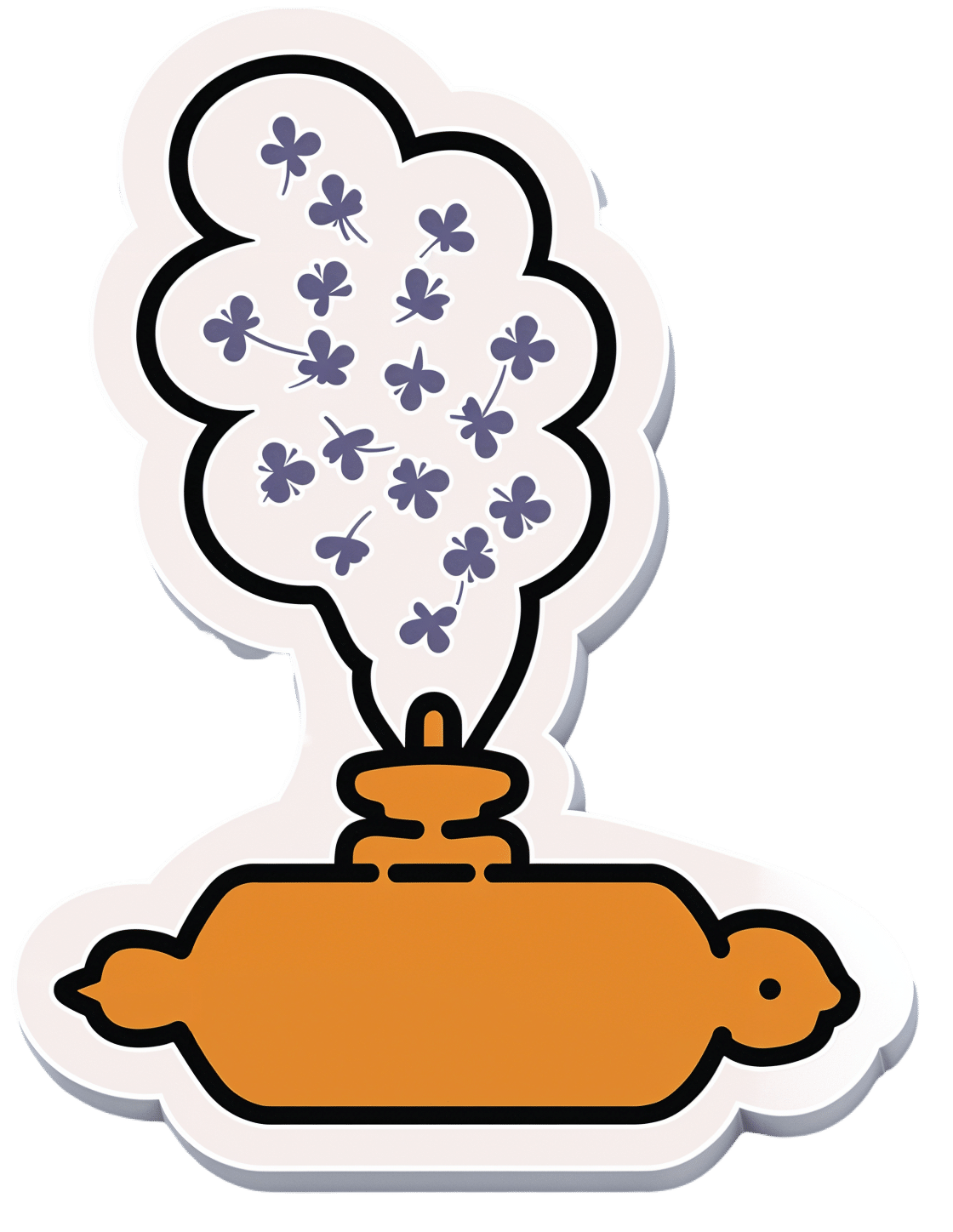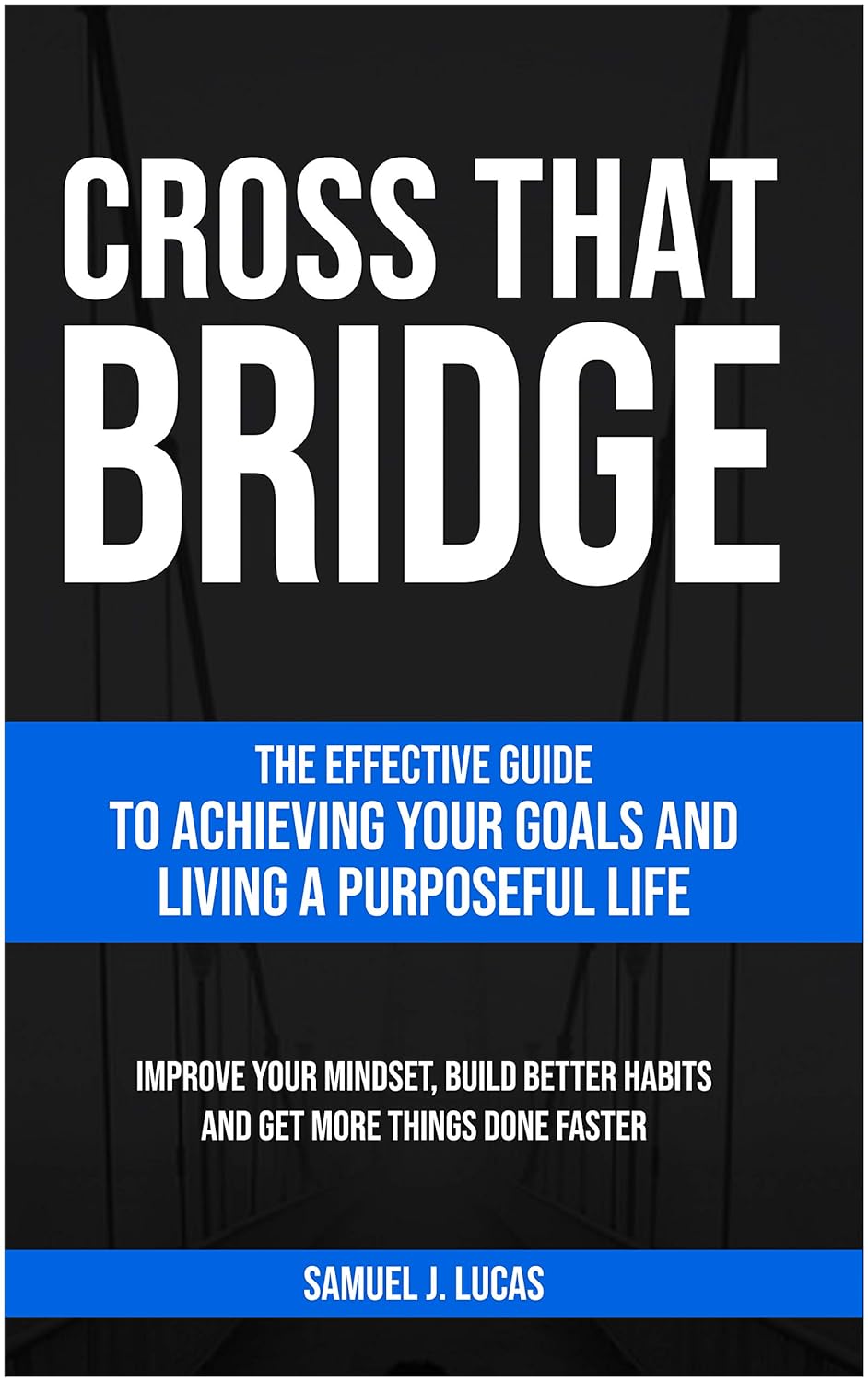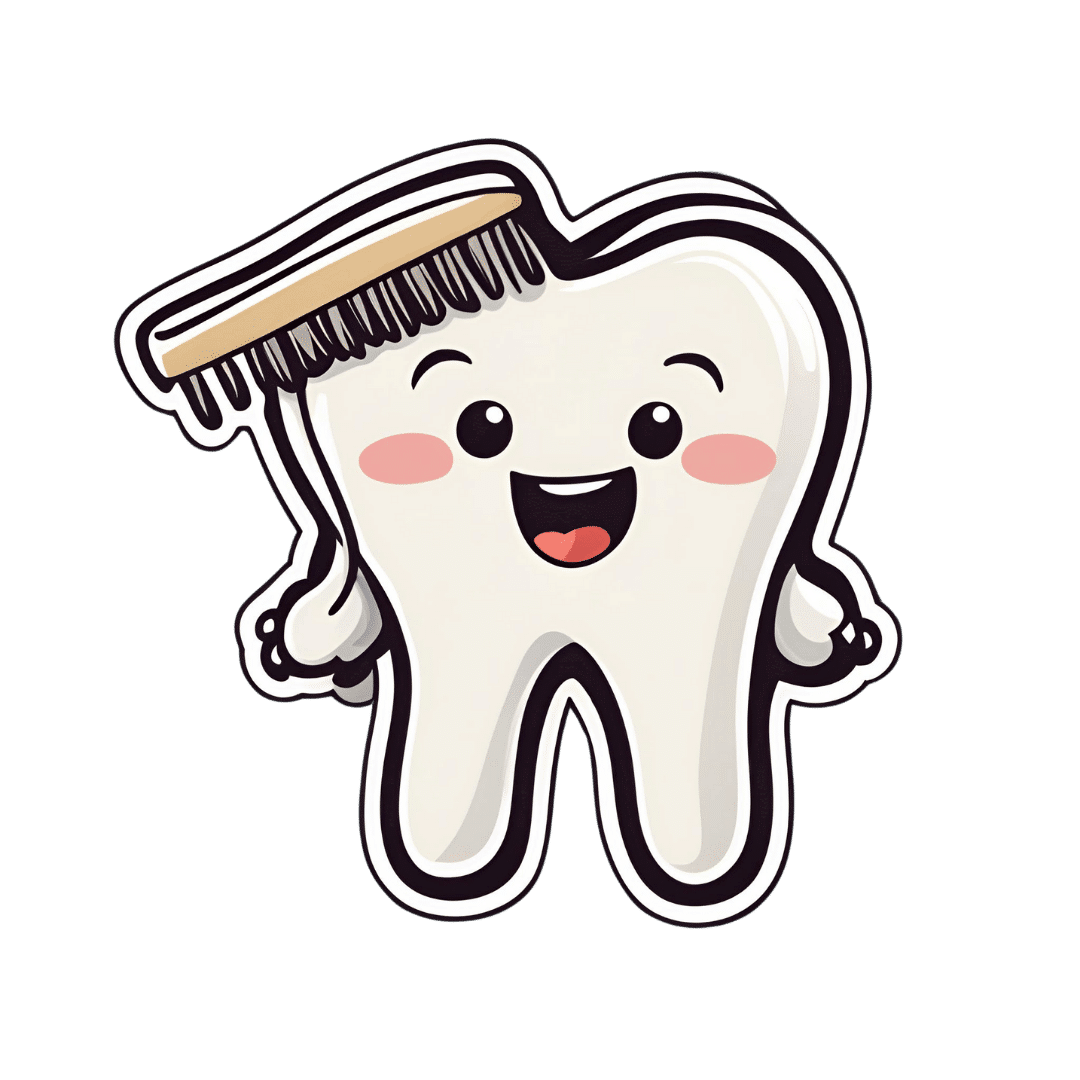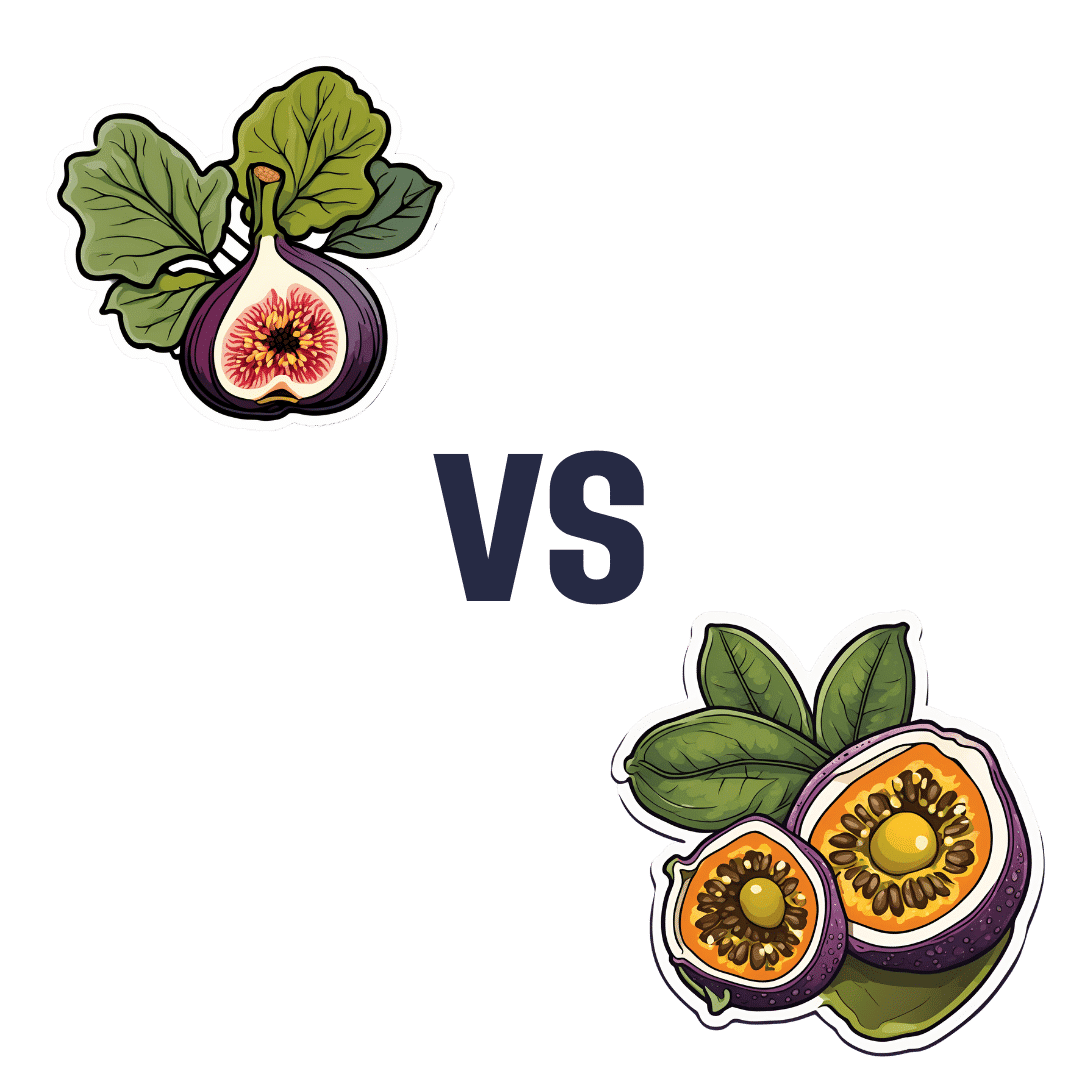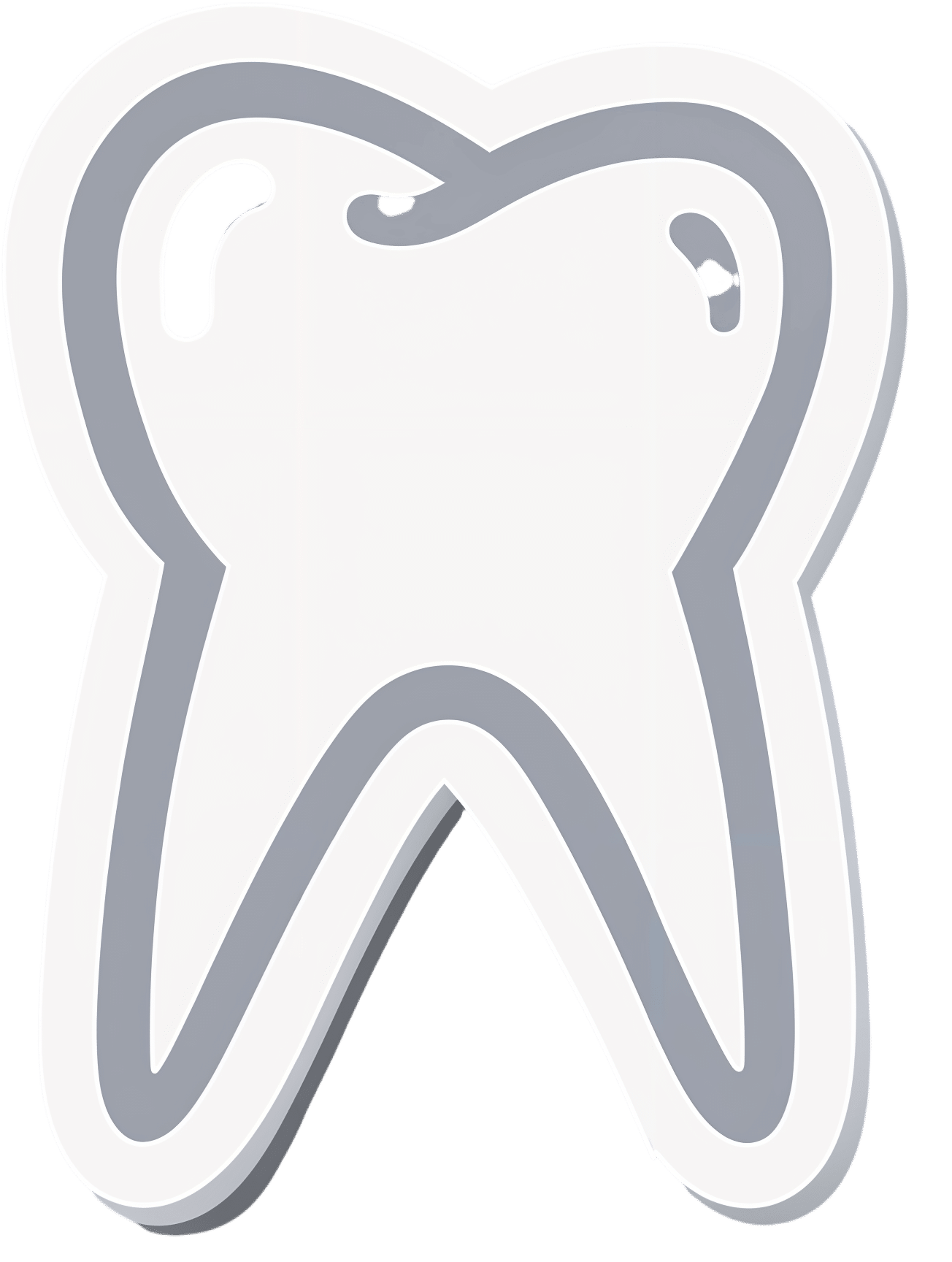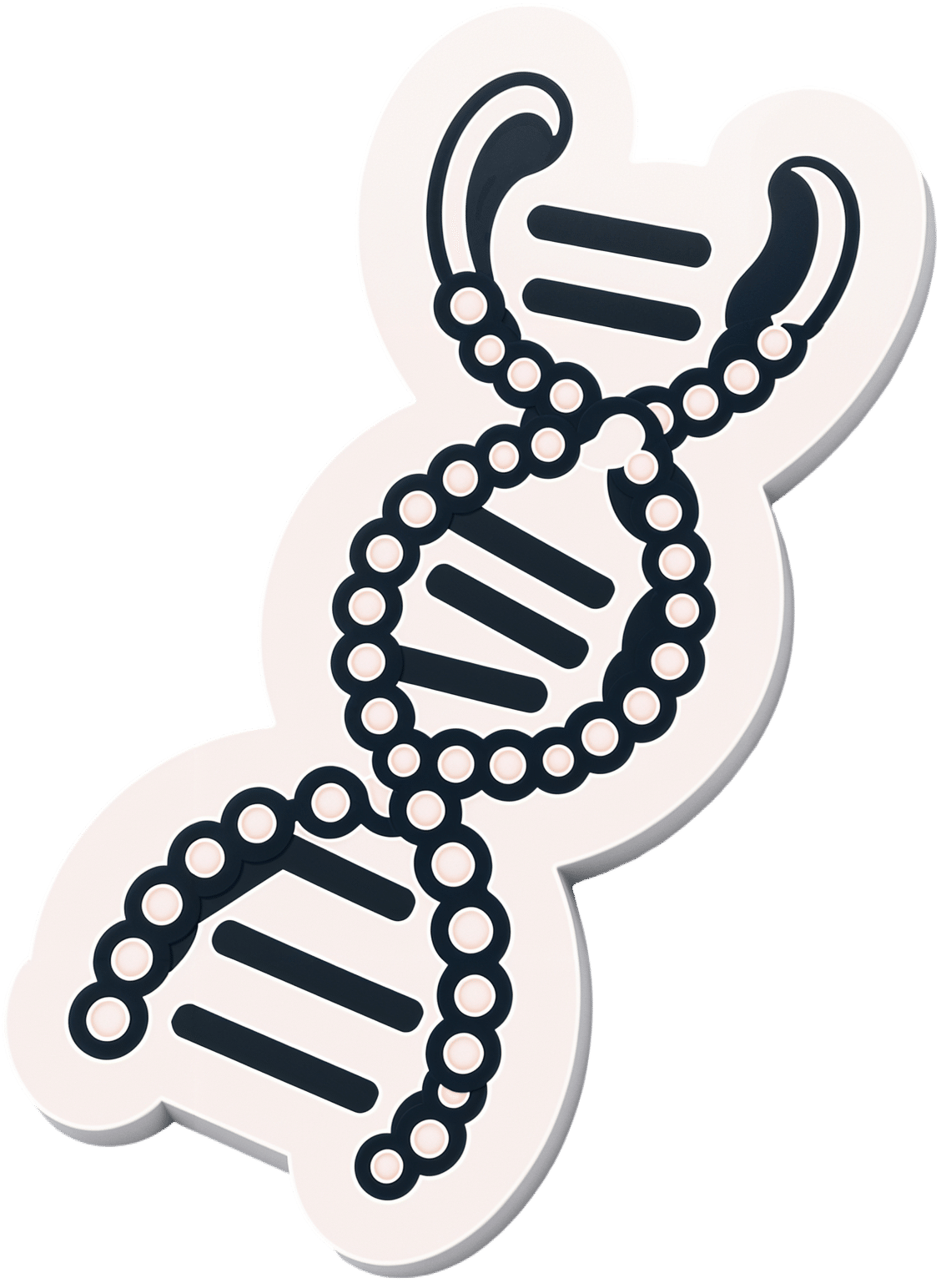
Spermidine For Longevity
10almonds is reader-supported. We may, at no cost to you, receive a portion of sales if you purchase a product through a link in this article.
It’s Q&A Day at 10almonds!
Have a question or a request? We love to hear from you!
In cases where we’ve already covered something, we might link to what we wrote before, but will always be happy to revisit any of our topics again in the future too—there’s always more to say!
As ever: if the question/request can be answered briefly, we’ll do it here in our Q&A Thursday edition. If not, we’ll make a main feature of it shortly afterwards!
So, no question/request too big or small 😎
❝How much evidence is there behind the longevity-related benefit related to spermidine, and more specifically, does it cause autophagy?❞
A short and simple answer to the latter question: yes, it does:
Spermidine: a physiological autophagy inducer acting as an anti-aging vitamin in humans?
For anyone wondering what autophagy is: it’s when old cells are broken down and consumed by the body to make new ones. Doing this earlier rather than later means that the genetic material is not yet so degraded when it is copied, and so the resultant new cell(s) will be “younger” than if the previous cell(s) had been broken down and recycled when older.
Indeed, we have written previously about senolytic supplements such as fisetin, which specialize in killing senescent (aging) cells earlier:
Fisetin: The Anti-Aging Assassin
As for spermidine and longevity, because of its autophagy-inducing properties, it’s considered a caloric restriction mimetic, that is to say, it has the same effect on a cellular level as caloric restriction. And yes, while it’s not an approach we regularly recommend here (usually preferring intermittent fasting as a CR-mimetic), caloric restriction is a way to fight aging:
Is Cutting Calories The Key To Healthy Long Life?
As for how spermidine achieves similarly:
Spermidine delays aging in humans
However! Both of the scientific papers on spermidine use in humans that we’ve cited so far today have conflict of interests statements made with regard to the funding of the studies, which means there could be some publication bias.
To that end, let’s look at a less glamorous study (e.g. no “in humans” in the title because, like most longevity studies, it’s with non-human animals with naturally short lifespans such as mice and rats), like this one that finds it to be both cardioprotective and neuroprotective and having many anti-aging benefits mediated by inducing autophagy:
A review on polyamines as promising next-generation neuroprotective and anti-aging therapy
(the polyamines in question are spermidine and putrescine, which latter is a similar polyamine)
Lastly, let’s answer a few likely related questions, so that you don’t have to Google them:
Does spermidine come from sperm?
Amongst other places (including some foods, which we’ll come to in a moment), yes, spermidine is normally found in semen (in fact, it’s partly responsible for the normal smell, though other factors influence the overall scent, such as diet, hormones, and other lifestyle factors such as smoking, alcohol use etc) and that is how/where it was first identified.
Does that mean that consuming semen is good for longevity?
Aside from the health benefits of a healthy sex life… No, not really. Semen does contain spermidine (as discussed) as well as some important minerals, but you’d need to consume approximately 1 cup of semen to get the equivalent spermidine you’d get from 1 tbsp of edamame (young soy) beans.
Unless your lifestyle is rather more exciting than this writer’s, it’s a lot easier to get 1 tbsp of edamame beans than 1 cup of semen.
Here are how some top foods stack up, by the way—we admittedly cherry-picked from the near top of the list, but wheatgerm is an even better source, with cheddar cheese and mushrooms (it was shiitake in the study) coming after soy:
Frontiers in Nutrition | Polyamines in Food
Alternatively, if you prefer to just take it in supplement form, here’s an example product on Amazon, giving 5mg per capsule (which is almost as much as the 1 cup of semen or 1 tbsp of edamame that we mentioned earlier).
Enjoy!
Don’t Forget…
Did you arrive here from our newsletter? Don’t forget to return to the email to continue learning!
Recommended
Learn to Age Gracefully
Join the 98k+ American women taking control of their health & aging with our 100% free (and fun!) daily emails:
-
Science-Based Alternative Pain Relief
10almonds is reader-supported. We may, at no cost to you, receive a portion of sales if you purchase a product through a link in this article.
When Painkillers Aren’t Helping, These Things Might
Maybe you want to avoid painkillers, or maybe you’ve already maxed out what you can have, and want more options as an extra help against the pain.
Today we’ll look at some science-backed alternative pain relief methods:
First: when should we try to relieve pain?
There is no such thing as “this pain is not too much”. The correct amount of pain is zero. Maybe your body won’t let you reach zero, but more than that is “too much” already.
You don’t have to be suffering off the scale to deserve relief from pain!
So: if it hurts, then if you can safely get relief from the pain, it’s already wise to do so.
A couple of things we covered previously
CBD and THC are technically drugs, but are generally considered “alternative” pain relief, so we’ll give a quick mention here:
Short version:
- CBD can treat some kinds of treatment-resistant pain well (others, not so much—try it and find out if it works for you)
- THC can offer some people respite not found from other methods—but beware, because there are many health risks to consider.
Acupuncture
Pain relief appears to be its strongest suit:
Pinpointing The Usefulness Of Acupuncture
Cloves
Yes, just like you can get from the supermarket.
In its medicinal uses, it’s most well-known as a toothache remedy, but it has a local analgesic effect wherever you put it (i.e., apply it topically to where the pain is), thanks to its eugenol content:
Boswellia (frankincense)
The resin of the Boswellia serrata tree, this substance has an assortment of medicinal properties, including pain relief, anti-inflammatory effect, and psychoactive (anxiolytic and antidepressant) effects:
Frankincense is psychoactive: new class of antidepressants might be right under our noses
And as for physical pain? Here’s how it faired against the pain of osteoarthritis (and other OA symptoms, but we’re focusing on pain today), for example:
Here’s an example product on Amazon, but feel free to shop around as there are many options, including for example this handy roll-on
Further reading
Intended for chronic pain, but in large part applicable to acute pain also:
Managing Chronic Pain (Realistically!)
Take care!
Share This Post
-
Cross That Bridge – by Samuel J. Lucas
10almonds is reader-supported. We may, at no cost to you, receive a portion of sales if you purchase a product through a link in this article.
Books of this genre usually have several chapters of fluff before getting to the point. You know the sort:
- Let me tell you about some cherry-picked celebrity stories that overlook survivorship bias
- Let me tell you my life story, the bad parts
- My life story continued, the good parts now
- What this book can do for you, an imaginative pep talk that keeps circling back to me
…then there will be two or three chapters of the actual advertised content, and then a closing chapter that’s another pep talk.
This book, in contrast, throws that out of the window. Instead, Lucas provides a ground-up structure… within which, he makes a point of giving value in each section:
- exercises
- summaries
- actionable advice
For those who like outlines, lists, and overviews (as we do!), this is perfect. There are also plenty of exercises to do, so for those who like exercises, this book will be great too!
Caveat: occasionally, the book’s actionable advices are direct but unclear, for example:
- Use the potential and power of tea, to solve problems
Context: there was no context. This was a bullet-pointed item, with no explanation. It was not a callback to anything earlier; this is the first (and only) reference to tea.
However! The book as a whole is a treasure trove of genuine tips, tools, and voice-of-experience wisdom. Occasional comments may leave you scratching your head, but if you take value from the rest, then the book was already more than worth its while.
Share This Post
-
Tooth Remineralization: How To Heal Your Teeth Naturally
10almonds is reader-supported. We may, at no cost to you, receive a portion of sales if you purchase a product through a link in this article.
Dr. Michelle Jorgensen, dentist, explains:
The bare-bones details:
Teeth cannot be regrown (yet!) but can be remineralized, which simply involves restoring lost minerals. When we’re talking about health, “minerals” is usually used to mean elemental minerals, like calcium, magnesium, phosphorus, etc, but the specific mineral that’s needed here is hydroxyapatite (a calcium phosphate mineral, the same as is found in bones).
Not only can acids from food and bacteria dissolve the minerals from the teeth, but also, the body itself may extract minerals from the teeth if it needs them for other functions it considers more critical and/or more urgent.
Cavities occur when acids create porous holes in teeth by dissolving minerals, which allows bacteria to invade, which means more acid, and cavities.
Remineralization can be achieved by doing the following things:
- Use hydroxyapatite-based products (tooth powder, mouthwash).
- Improve gut health to ensure proper mineral absorption.
- Reduce acidic food and drink intake.
- Maintain good oral hygiene to prevent bacteria build-up.
- Eat foods rich in vitamins A, D, E, and K, which help direct minerals to teeth and bones.
For more on all of the above, enjoy:
Click Here If The Embedded Video Doesn’t Load Automatically!
Want to learn more?
You might also like to read:
- Less Common Oral Hygiene Options
- Fluoride Toothpaste vs Non-Fluoride Toothpaste – Which is Healthier?
Take care!
Share This Post
Related Posts
-
Figs vs Passion Fruit – Which is Healthier?
10almonds is reader-supported. We may, at no cost to you, receive a portion of sales if you purchase a product through a link in this article.
Our Verdict
When comparing figs to passion fruit, we picked the passion fruit.
Why?
Both are top-tier fruits! But the passion fruit is just that bit more passionate about delivering healthy nutrients:
In terms of macros, passion fruit has slightly more carbs, notably more protein, and a lot more fiber, giving it the win in this category.
In the category of vitamins, figs have more of vitamins B1, B5, B6, E, and K, while passion fruit has more of vitamins A, B2, B3, B9, C, and choline, making for a marginal win by the numbers for passion fruit here.
When it comes to minerals, figs have more calcium, manganese, and zinc, while passion fruit has more copper, iron, magnesium, phosphorus, potassium, and selenium. A clearer win for passion fruit this time.
Adding up the sections makes for an easy overall win for passion fruit, but again, figs are really a top-tier fruit too; passion fruit just beats them! By all means enjoy either or both; diversity is good!
Want to learn more?
You might like:
Top 8 Fruits That Prevent & Kill Cancer ← figs have antitumor effects specifically, while removing carcinogens too, and additionally sensitizing cancer cells to light therapy
Enjoy!
Don’t Forget…
Did you arrive here from our newsletter? Don’t forget to return to the email to continue learning!
Learn to Age Gracefully
Join the 98k+ American women taking control of their health & aging with our 100% free (and fun!) daily emails:
-
How to keep your teeth young
10almonds is reader-supported. We may, at no cost to you, receive a portion of sales if you purchase a product through a link in this article.
How to keep your teeth young
The association between aging and teeth is so well-established that it’s entered popular idiom, “too long in the tooth”, and when it comes to visual representations, false teeth are well-associated with old age.
And yet, avoiding such outcomes does not get anywhere near so much attention as, say, avoiding wrinkles or hair loss.
At 10almonds, we’ve covered general dental health before, in a three-part series:
- Toothpastes & Mouthwashes: Which Help And Which Harm?
- Flossing, Better (And Easier!)
- Less Common Oral Hygiene Options
Today, we’re going to be looking specifically at keeping our teeth young. What if you have lost your teeth already? Well, gum health remains important, and it’s foundational for everyone, so…
Look after your gums first and last
Hollywood’s most “perfect” whites would be nothing without the gums holding them in place. So, set aside the cosmetic whitening products that often harm gums (anything containing bleach / hydrogen peroxide, is generally a bad idea), andinstead focus on your gums.
As for avoiding gum disease (periodontitis)?
❝In conclusion, periodontitis might enhance the association of biological aging with all-cause mortality in middle-aged and older adults.
Hence, maintaining and enhancing periodontal health is expected to become an intervention to slow aging and extend life span.❞
Source: Does Periodontitis Affect the Association of Biological Aging with Mortality?
Ways to look after gum health include the obvious “floss” and “brush often” and “use fluoride toothpaste”, along with other options we covered in our “Less Common Oral Hygiene Options” article above.
Also important: don’t smoke. It is bad for everything, and this is no exception.
We expect we probably don’t have many subscribers who smoke, but if you do, please consider making quitting a priority.
See also: Smoking, Gum Disease, and Tooth Loss
Consider supplementing with collagen
Everyone’s all about the calcium and vitamin D for bones (and teeth), but a large part of the mass of both is actually collagen. And unlike calcium, which most people not living in a food desert get plenty of, or vitamin D, which is one of the most popular supplements around, collagen is something that gets depleted as we get older. We’ve written about its importance for bones:
We Are Such Stuff As Fish Are Made Of—Collagen’s benefits are more than skin deep
And as for its role in combatting gum disease and tooth loss:
Nanoscale Dynamics of Streptococcal Adhesion to AGE-Modified Collagen
By the way, that “AGE” there isn’t about chronological age; it’s about advanced glycation end-products. Those are also something you can and should avoid:
A different kind of “spit and polish”
We imagine you have the “polishing” part in hand; that’s tooth-brushing, of course. But spit?
Saliva is hugely important for our oral health, but it’s not something most of us think about a lot. For example, you might not have known (or might have known but not thought much about) that many common medications affect our saliva, including many blood pressure medications and antidepressants:
Impact of ageing and drug consumption on oral health
Because there are so many possibilities, this is the kind of thing to check with your pharmacist or doctor about. But as a rule, if you take a medication whose side-effects include “dry mouth”, this might be you.
Here’s a really useful (academic) article that covers what drugs cause this, how to diagnose it, and what can be done about it:
Hyposalivation in Elderly Patients
If something’s difficult, find a way to make it easier
Sometimes, as we get older, some things that used to be easy, aren’t. We can lose strength, coordination, manual dexterity, memory, attention, and more. Obviously, we try not to, and do what we can to keep ourselves in good health.
But, if you do have some disability that makes for example brushing and/or flossing difficult to do consistently and/or well, consider talking to your doctor to see if there are assistive devices that can help, or some other kind of support that could allow you to do what you need to.
There’s never any shame in getting help if we need it.
Take care!
Don’t Forget…
Did you arrive here from our newsletter? Don’t forget to return to the email to continue learning!
Learn to Age Gracefully
Join the 98k+ American women taking control of their health & aging with our 100% free (and fun!) daily emails:
-
Dr. Greger’s Anti-Aging Eight
10almonds is reader-supported. We may, at no cost to you, receive a portion of sales if you purchase a product through a link in this article.
Dr. Greger’s Anti-Aging Eight
This is Dr. Michael Greger. We’ve featured him before: Brain Food? The Eyes Have It!
This time, we’re working from his latest book, the excellent “How Not To Age”, which we reviewed all so recently. It is very information-dense, but we’re going to be focussing on one part, his “anti-aging eight”, that is to say, eight interventions he rates the most highly to slow aging in general (other parts of the book pertained to slowing eleven specific pathways of aging, or preserving specific bodily functions against aging, for example).
Without further ado, his “anti-aging eight” are…
- Nuts
- Greens
- Berries
- Xenohormesis & microRNA manipulation
- Prebiotics & postbiotics
- Caloric restriction / IF
- Protein restriction
- NAD+
As you may have noticed, some of these are things might appear already on your grocery shopping list; others don’t seem so “household”. Let’s break them down:
Nuts, greens, berries
These are amongst the most nutrient-dense and phytochemical-useful parts of the diet that Dr. Greger advocates for in his already-famous “Dr. Greger’s Daily Dozen”.
For brevity, we’ll not go into the science of these here, but will advise you: eat a daily portion of nuts, a daily portion of berries, and a couple of daily portions of greens.
Xenohormesis & microRNA manipulation
You might, actually, have these on your grocery shopping list too!
Hormesis, you may recall from previous editions of 10almonds, is about engaging in a small amount of eustress to trigger the body’s self-strengthening response, for example:
Xenohormesis is about getting similar benefits, second-hand.
For example, plants that have been grown to “organic” standards (i.e. without artificial pesticides, herbicides, fertilizers) have had to adapt to their relatively harsher environment by upping their levels of protective polyphenols and other phytochemicals that, as it turns out, are as beneficial to us as they are to the plants:
Hormetic Effects of Phytochemicals on Health and Longevity
Additionally, the flip side of xenohormesis is that some plant compounds can themselves act as a source of hormetic stress that end up bolstering us. For example:
In essence, it’s not just that it has anti-oxidant effect; it also provides a tiny oxidative-stress immunization against serious sources of oxidative stress—and thus, aging.
MicroRNA manipulation is, alas, too complex to truly summarize an entire chapter in a line or two, but it has to do with genetic information from the food that we eat having a beneficial or deleterious effect to our own health:
Diet-derived microRNAs: unicorn or silver bullet?
A couple of quick takeaways (out of very many) from Dr. Greger’s chapter on this is to spring for the better quality olive oil, and skip the cow’s milk:
- Impact of Phenol-Enriched Virgin Olive Oils on the Postprandial Levels of Circulating microRNAs Related to Cardiovascular Disease
- MicroRNA exosomes of pasteurized milk: potential pathogens of Western diseases
Prebiotics & Postbiotics
We’re short on space, so we’ll link you to a previous article, and tell you that it’s important against aging too:
Making Friends With Your Gut (You Can Thank Us Later)
An example of how one of Dr. Greger’s most-recommended postbiotics helps against aging, by the way:
- The mitophagy activator urolithin A is safe and induces a molecular signature of improved mitochondrial and cellular health in humans
- Urolithin A improves muscle strength, exercise performance, and biomarkers of mitochondrial health in a randomized trial in middle-aged adults
(Urolithin can be found in many plants, and especially those containing tannins)
See also: How to Make Urolithin Postbiotics from Tannins
Caloric restriction / Intermittent fasting
This is about lowering metabolic load and promoting cellular apoptosis (programmed cell death; sounds bad; is good) and autophagy (self-consumption; again, sounds bad; is good).
For example, he cites the intermittent fasters’ 46% lower risk of dying in the subsequent years of follow-up in this longitudinal study:
For brevity we’ll link to our previous IF article, but we’ll revisit caloric restriction in a main feature on of these days:
Fasting Without Crashing? We sort the science from the hype!
Dr. Greger favours caloric restriction over intermittent fasting, arguing that it is easier to adhere to and harder to get wrong if one has some confounding factor (e.g. diabetes, or a medication that requires food at certain times, etc). If adhered to healthily, the benefits appear to be comparable for each, though.
Protein restriction
In contrast to our recent main feature Protein vs Sarcopenia, in which that week’s featured expert argued for high protein consumption levels, protein restriction can, on the other hand, have anti-aging effects. A reminder that our body is a complex organism, and sometimes what’s good for one thing is bad for another!
Dr. Greger offers protein restriction as a way to get many of the benefits of caloric restriction, without caloric restriction. He further notes that caloric restriction without protein restriction doesn’t decrease IGF-1 levels (a marker of aging).
However, for FGF21 levels (these are good and we want them higher to stay younger), what matters more than lowering proteins in general is lowering levels of the amino acid methionine—found mostly in animal products, not plants—so the source of the protein matters:
For example, legumes deliver only 5–10% of the methionine that meat does, for the same amount of protein, so that’s a factor to bear in mind.
NAD+
This is about nicotinamide adenine dinucleotide, or NAD+ to its friends.
NAD+ levels decline with age, and that decline is a causal factor in aging, and boosting the levels can slow aging:
Therapeutic Potential of NAD-Boosting Molecules: The In Vivo Evidence
Can we get NAD+ from food? We can, but not in useful quantities or with sufficient bioavailability.
Supplements, then? Dr. Greger finds the evidence for their usefulness lacking, in interventional trials.
How to boost NAD+, then? Dr. Greger prescribes…
Exercise! It boosts levels by 127% (i.e., it more than doubles the levels), based on a modest three-week exercise bike regimen:
Skeletal muscle NAMPT is induced by exercise in humans
Another study on resistance training found the same 127% boost:
Take care!
Don’t Forget…
Did you arrive here from our newsletter? Don’t forget to return to the email to continue learning!
Learn to Age Gracefully
Join the 98k+ American women taking control of their health & aging with our 100% free (and fun!) daily emails:


